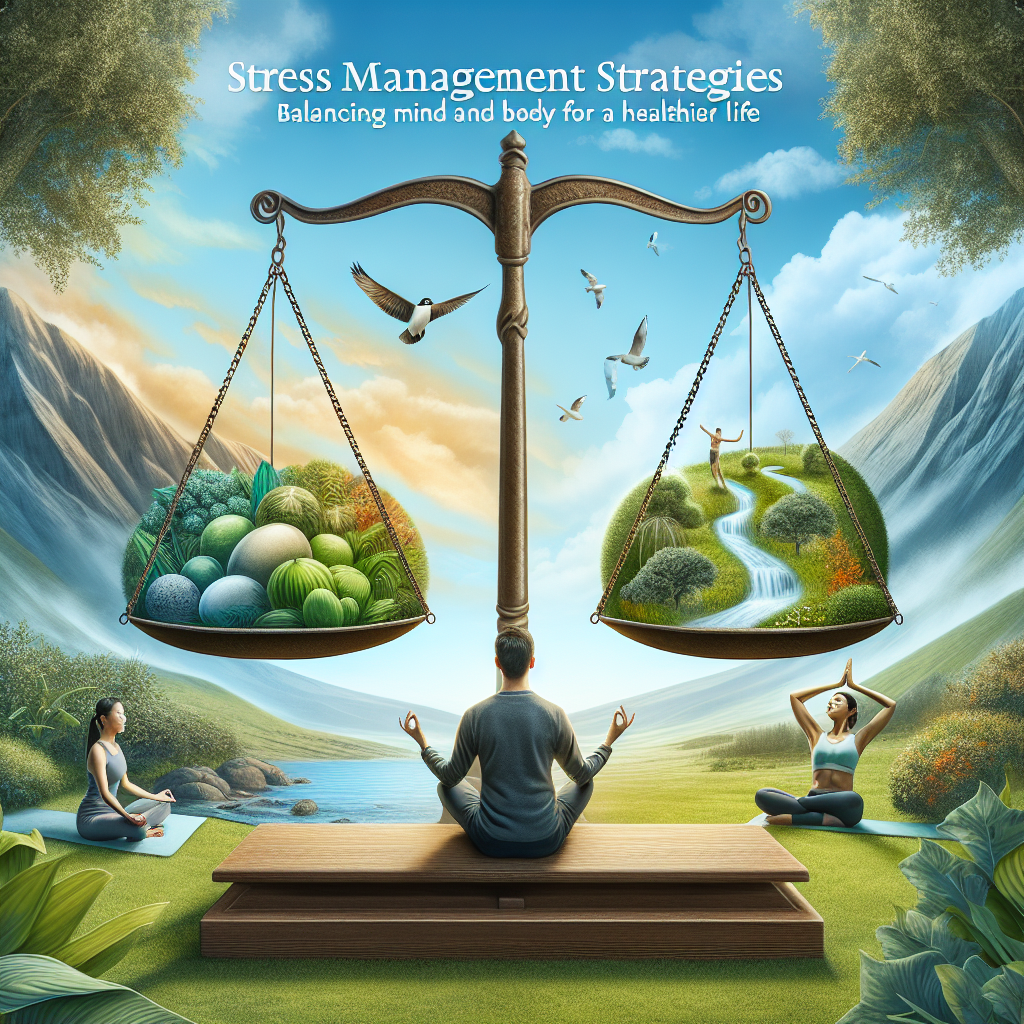In today’s fast-paced world, stress has become a common companion for many. Whether it’s work pressures, family responsibilities, or personal challenges, finding effective stress management strategies is crucial. Balancing mind and body can lead to a healthier and more fulfilled life. In this article, we will explore several techniques that you can incorporate into your daily routine to keep stress at bay.
Understanding Stress
Stress is a natural response of the body to perceived threats or challenges. When faced with a stressful situation, your body produces hormones like adrenaline and cortisol, preparing you to either fight or flee. While short bursts of stress can be beneficial, chronic stress can lead to numerous health issues, including anxiety, depression, heart problems, and weakened immune function.
Identifying the Sources of Stress
The first step to effective stress management is identifying the sources of stress in your life. Here are some common stressors:
- Work-related pressures
- Financial concerns
- Family responsibilities
- Health issues
- Major life changes, such as moving or divorce
Once you know what’s causing your stress, you can take steps to address it.
Effective Stress Management Strategies
1. Practice Mindfulness and Meditation
Mindfulness involves being present in the moment without judgment. It can reduce stress and anxiety significantly. Consider incorporating meditation into your daily routine, even if it’s just for 5-10 minutes.
- Try guided meditation apps like Headspace or Calm.
- Practice deep-breathing exercises.
2. Regular Physical Activity
Exercise is one of the most effective ways to combat stress. Physical activity increases the production of endorphins, the body’s natural mood lifters. Aim for at least 30 minutes of moderate exercise most days of the week.
- Walk, jog, or cycle to relieve stress.
- Join a class like yoga or Zumba that combines movement with mindfulness.
3. Maintain a Healthy Diet
Your diet can have a significant impact on how well you cope with stress. Eating a well-balanced diet rich in fruits, vegetables, lean proteins, and whole grains can help maintain your energy levels and mood.
- Limit caffeine and sugar intake, which can increase feelings of anxiety.
- Stay hydrated to help your body function at its best.
4. Get Enough Sleep
Quality sleep is essential for effective stress management. Lack of sleep can lead to irritability, anxiety, and poor concentration. Develop a consistent sleep routine to promote better sleep quality.
- Aim for 7-9 hours of quality sleep each night.
- Create a relaxing bedtime ritual to signal your body that it’s time to wind down.
5. Develop a Support Network
Talking about your problems can help you feel less stressed. Connecting with friends, family, or even professional therapists can provide support and new perspectives on handling stress.
- Join support groups or communities that share your interests.
- Reach out to friends for coffee or video calls to share your feelings.
6. Set Boundaries
Learning to say “no” is an important part of stress management. Setting healthy boundaries can help you manage your time and energy.
- Assess your current commitments and evaluate what you can realistically handle.
- Don’t be afraid to delegate tasks or ask for help.
7. Engage in Hobbies
Engaging in leisure activities that you enjoy can help reduce stress. Taking time for hobbies can provide a mental break and improve your overall well-being.
- Pursue creative activities like painting, writing, or music.
- Try new skills like cooking or gardening.
8. Practice Gratitude
Focusing on the positive aspects of your life can help shift your mindset away from stressors. Keep a gratitude journal where you write down things you are thankful for each day.
Conclusion
Managing stress effectively requires a balanced approach that nurtures both the mind and body. By incorporating these strategies into your daily life, you can create a healthier, more balanced lifestyle. Remember that stress management is a personal journey—what works for one person may not work for another. Take the time to find the techniques that resonate with you and make them a regular part of your life.
FAQs
1. What is the best way to start managing stress?
The best way to start managing stress is to identify your stressors and implement small changes in your daily routine. Techniques like mindfulness, exercise, and journaling can be effective starting points.
2. How long does it take to see results from stress management techniques?
Results can vary based on the individual and the techniques used. Some people may feel immediate relief from mindfulness or exercise, while others might need several weeks of consistent effort to notice significant changes.
3. Can stress management be self-taught?
Absolutely! Many stress management techniques can be learned through books, online resources, and workshops. However, seeking professional help can provide tailored support and guidance.
4. Is it necessary to consult a professional for stress management?
While many people can manage their stress effectively on their own, consulting a professional for advice and support may be necessary if stress becomes overwhelming or leads to mental health issues.





